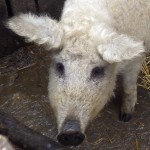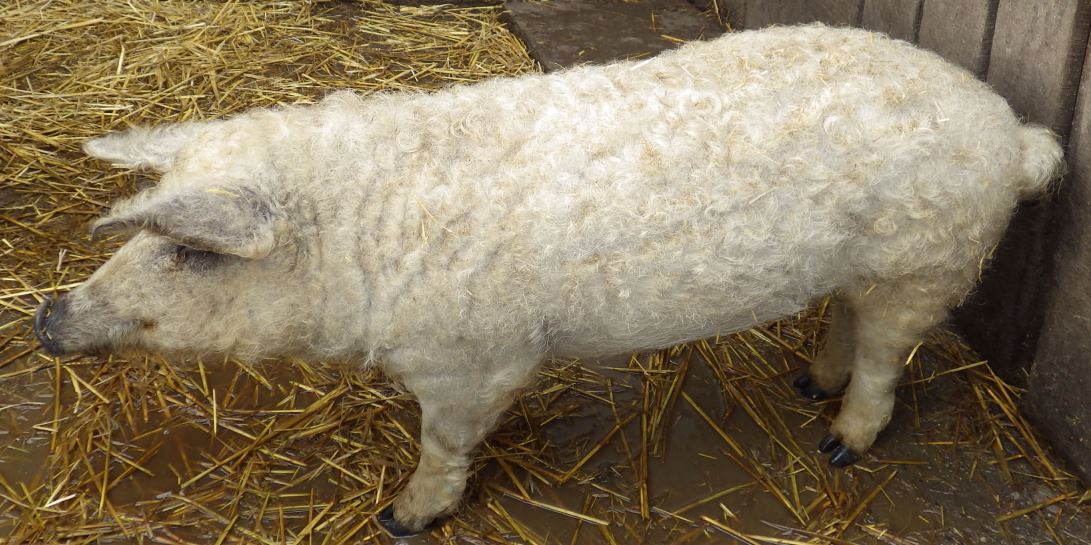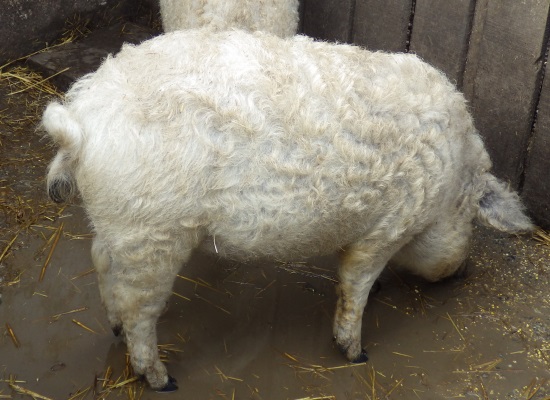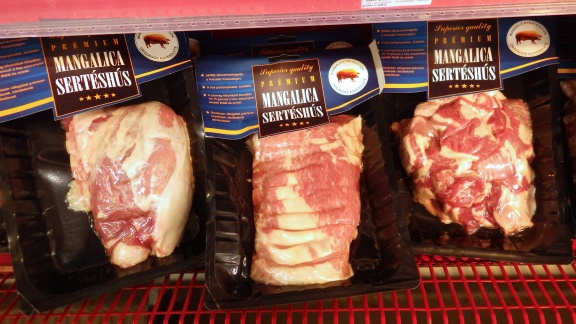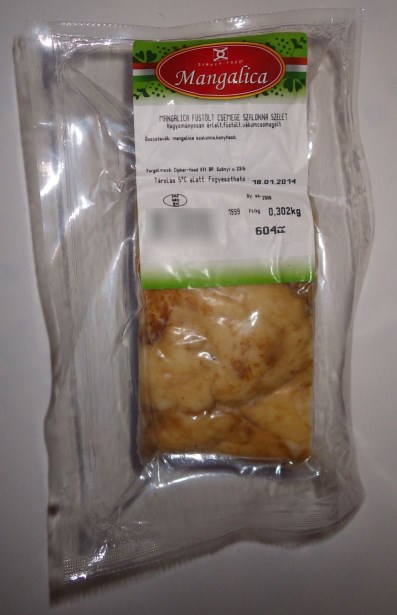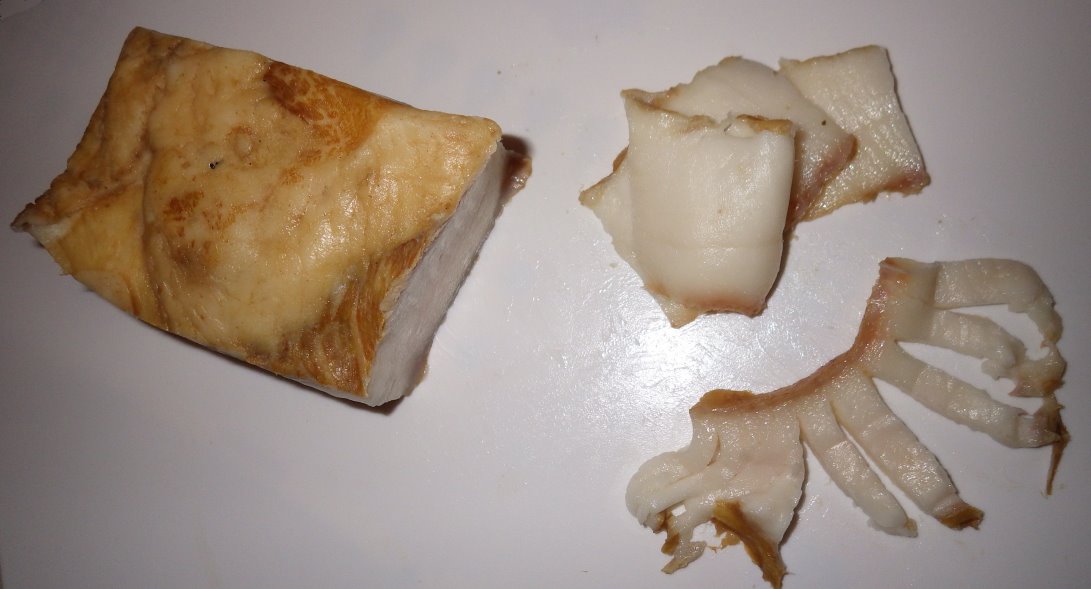The Mangalitsa — also spelled Mangalitza (UK), and Mangalica (Hungarian) — is a breed of Hungarian domestic pig that was originally produced by crossing the domestic pig with the local wild boar. Mangalitsas are interesting looking woolly pigs — somewhat similar to the English breeds.
Mangalitsa pigs have a very strong bone structure and they are capable of gaining a lot of weight within a short period of time, yet still be able to walk around and forage for food. Mangalitsas are usually kept as semi-feral pigs (occasionally cross breading with wild boars!) and they would eat whatever the land provides including lots of acorns in the autumn when the oak trees start producing them. Eating acorns makes mangalitsa fat rich in unsaturated fatty acids and very soft.
Mangalitsas are kept mainly for high quality lard production, but their meat is gaining popularity again.
Of course mangalitsa bacon is still popular.
In fact sometimes other bacon is labelled as mangalitsa to fetch a higher price. One can usually tell the difference because mangalitsa bacon is a lot softer than the bacon coming from most other pigs. You can see in the next picture, that when this piece of bacon was cut up it was very soft, smaller pieces were delicate, and they did not keep their shape but bent and folded. Thus this piece of bacon must have been real mangalitsa.
Further Readings:
The Woolly Mangalica Pig
An Old Breed of Hungarian Pig Is Back in Favor
Michigan farmers raise furry, Hungarian Mangalitsa pigs to produce the ‘Kobe beef’ of pork
Hungarian National Association of Mangalica Breeders


